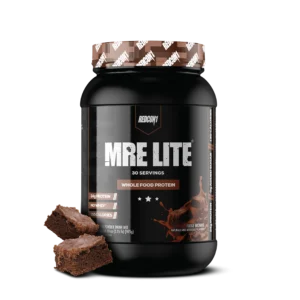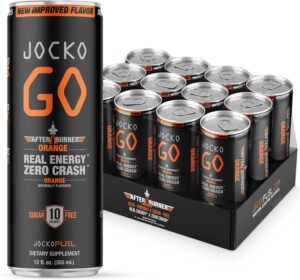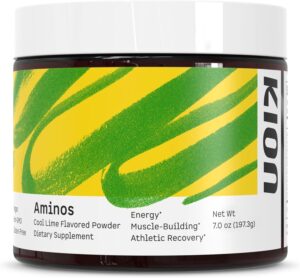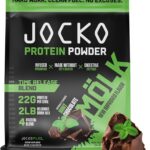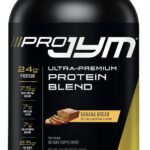
The 9 Essential Amino Acids: Building Blocks for a Healthy Body

Amino acids are the building blocks of proteins, which are essential for the proper functioning of our bodies. There are 20 different amino acids, 9 of which are considered essential amino acids. Essential amino acids cannot be produced by our bodies and must be obtained through food or supplements.
The Following are 10 common Frequently Asked Questions about EAA:
-
What are essential amino acids, and why are they important?
- Essential amino acids are amino acids that the body cannot produce on its own and must be obtained from the diet. They are crucial for building proteins and supporting various physiological functions.
-
How many essential amino acids are there?
- There are nine essential amino acids that humans need to obtain from their diet.
-
What foods are good sources of essential amino acids?
- Foods like meat, fish, eggs, dairy products, soy, quinoa, and certain legumes are excellent sources of essential amino acids.
-
What happens if I don’t get enough essential amino acids in my diet?
- A deficiency in essential amino acids can lead to muscle wasting, compromised immune function, impaired growth and development, and other health issues.
-
Can vegetarians and vegans get all essential amino acids from plant-based foods?
- Yes, by consuming a variety of plant-based protein sources, such as beans, lentils, tofu, and nuts, vegetarians and vegans can obtain all essential amino acids.
-
Is there a recommended daily intake for essential amino acids?
- There are recommended daily allowances (RDAs) for individual amino acids, but they can vary based on factors like age, gender, and activity level.
-
Can essential amino acid supplements be beneficial?
- Essential amino acid supplements may be beneficial for individuals with specific dietary restrictions or those looking to optimize their protein intake. However, it’s best to consult a healthcare professional before using supplements.
-
Are there any side effects associated with essential amino acid supplements?
- Side effects are rare when taken at recommended doses, but excessive intake of amino acid supplements can lead to imbalances and potentially cause health issues.
-
What role do essential amino acids play in muscle building and fitness?
- Essential amino acids, especially branched-chain amino acids (BCAAs) like leucine, are essential for muscle protein synthesis and can aid in muscle recovery and growth when consumed as part of a balanced diet.
-
Can essential amino acids help with weight management?
- Essential amino acids can support weight management by promoting satiety and helping to preserve lean muscle mass during weight loss efforts.
Here is a list of the 9 essential amino acids and how they help our bodies:
- Lysine: Lysine plays a crucial role in protein synthesis, collagen production, and the absorption of calcium. It also helps in the production of enzymes, hormones, and antibodies.
- Leucine: Leucine is important for muscle growth, repair, and overall protein synthesis. It also helps regulate blood sugar levels and provides energy to the muscles.
- Isoleucine: Isoleucine is involved in muscle metabolism and energy production. It also helps regulate blood sugar levels and promotes the healing of damaged tissues.
- Valine: Valine is essential for muscle metabolism, tissue repair, and the maintenance of proper nitrogen balance in the body. It also provides energy to the muscles during intense physical activity.
- Threonine: Threonine is necessary for the formation of collagen, elastin, and muscle tissue. It also plays a role in the proper functioning of the immune system and the maintenance of a healthy liver.
- Methionine: Methionine is involved in the synthesis of proteins, DNA, and other important molecules in the body. It also helps detoxify harmful substances and supports the health of the skin and nails.
- Phenylalanine: Phenylalanine is important for the production of neurotransmitters, such as dopamine and norepinephrine, which regulate mood and brain function. It also plays a role in the synthesis of other important molecules, such as tyrosine and thyroid hormones.
- Tryptophan: Tryptophan is a precursor for the production of serotonin, a neurotransmitter that regulates mood, sleep, and appetite. It also supports the production of niacin, a B-vitamin essential for energy production and the maintenance of healthy skin.
- Histidine: Histidine is involved in the production of histamine, a neurotransmitter that plays a role in immune response, digestion, and sexual function. It also helps maintain the myelin sheath, a protective covering around nerve cells.
Ensuring an adequate intake of these essential amino acids is crucial for maintaining optimal health. A balanced diet that includes a variety of protein-rich foods, such as meat, fish, eggs, dairy products, legumes, and nuts, can help meet the body’s amino acid requirements.













